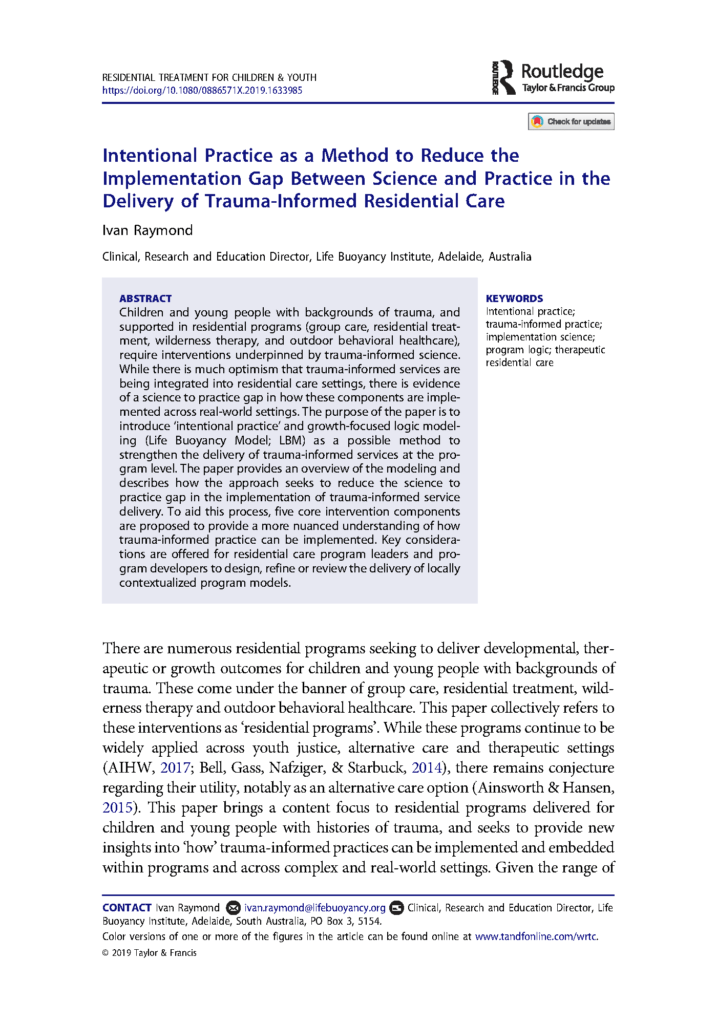Introducing the Article
Intentional Practice as a Method to Reduce the Implementation Gap Between Science and Practice in the Delivery of Trauma-Informed Residential Care
Dr Ivan Raymond, LBI Foundation
This 2020 article describes in detail how intentional practice can be applied to strengthen the implementation of trauma-informed practice across therapeutic residential care settings. It offers practical insights for implementing trauma-informed science across educational, foster care, community service and broader therapeutic program settings.
Reference:
Raymond, I. (2020). Intentional Practice as a Method to Reduce the Implementation Gap Between Science and Practice in the Delivery of Trauma-Informed Residential Care. Residential Treatment for Children & Youth, 37(1), 20-45. doi: 10.1080/0886571X.2019.1633985
For further information, please click here.

New Articles
- Student Voice of a Wellbeing-Responsive Educational Community
- Wellbeing Responsive Community: A Growth Target for Intentional Mental Health Promotion
- Intentional Practice: A Common Language, Approach and Set of Methods
- Strengthening the Implementation of Trauma Science
- Intentionally Designed and Delivered Grassroots Social-Emotional Learning Programs
Categories
Key Messages
Significance of the Article
- The article introduces the value and role of intentional practice (and language and approach of intent) to strengthen the implementation of trauma-informed practice across residential care settings.
- The articulate indicates that trauma-informed practice should be made practical from the “system” (entire residential care setting), all the way to “moment-to-moment” support to children and young people.
- The article argues that residential care programs should have a clearly articulated “therapeutic” program model that articulates how trauma-informed and therapeutic practices are made practical from the “system” to the “moment”.
- Through such a model, ‘best-practice’ residential care services can clearly articulate:
- Their core therapeutic components.
- The relationships between components.
- How these components are supported by a consistent growth-focused practice philosophy.
- The article argues that ‘best-practice’ therapeutic residential care programs include the following five components:
- Growth and risk focused procedures and systems.
- Foundational therapeutic principles (setting conditions)
- Moment-to-moment practice and growth planning.
- Crisis management.
- Coaching and reflective practices.
- The article offers the following critical questions for therapeutic residential care programmers?
- What is the intent of our service model or program?
- Are we bringing high levels of mindful awareness to the needs and experiences of children, the intent or purpose of our work, the outcomes we are working towards, and how we are working towards those outcomes?
- Do we have systems and methods to activate this awareness within our program and across our staff teams within moment-to-moment practice?
- What are the active ingredients or core therapeutic or trauma-informed intervention components of our service delivery? Can all of our staff articulate the intent or purpose of each component, and how do individual therapeutic components relate and interface with each other?
- Do we have a cohesive practice philosophy or intent that underpins our entire program or therapeutic components?
- Are we bringing enough awareness and energy to ‘growth’ as an intent or practice philosophy within our service delivery? Or are we overly preoccupied with ‘managing’ child behavior or risk within our service?
- Do we have a method to operationalise our milieu-based model (e.g, Sanctuary Model) into moment-to-moment practice (or in a manner that staff can operationalise into the next interaction with a child, as personalised to a child’s individual needs and context)?
Further Information
For further information on this paper, please contact Dr Ivan Raymond on ivan.raymond@lbi.org.au
A case example of a therapeutic model that has been designed based upon the evidence in the article is provided in this video.






